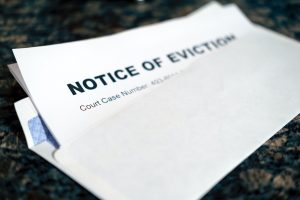How to Handle Tenant Eviction
Being a landlord comes with its share of responsibilities, and one of the most challenging aspects can be navigating the eviction process. In Alberta, understanding the legal procedures and following them diligently is crucial to ensure a smooth and lawful eviction.
This guide aims to provide landlords in Alberta with essential insights on how to handle tenant eviction.
Know Your Rights and Responsibilities
Before initiating the eviction process, it’s essential to familiarize yourself with your rights and responsibilities as a landlord. The Residential Tenancies Act (RTA) governs the landlord-tenant relationship in Alberta, outlining the rules and procedures for eviction. Understanding these regulations is the first step in the eviction process.
Grounds for Eviction
Alberta’s RTA specifies valid reasons for eviction, including non-payment of rent, illegal activities on the premises, damage to the property, or repeated violations of the lease agreement. Ensure that your case falls within the legally acceptable grounds for eviction before taking any action.
Serve Proper Notice
Once you’ve determined valid grounds for eviction, the next step is to serve the appropriate notice to the tenant. Alberta has different notice periods for various reasons, such as 14 days for unpaid rent, 24 hours for illegal activities, and 14 days for substantial breaches of the lease agreement. Ensure that you use the correct notice form and follow the specified timelines.
File an Application for Termination and Possession
If the tenant fails to remedy the issue or vacate the premises after receiving the notice, the next step is to file an application for termination and possession with the Residential Tenancy Dispute Resolution Service (RTDRS) or the court. The application will include details about the eviction grounds and the steps taken to resolve the issue.
Attend the Hearing
Upon applying, a hearing will be scheduled. Attend the hearing prepared with all relevant documentation, including the lease agreement, notices served, and any communication between you and the tenant. Present your case clearly and concisely, providing evidence to support your claims.
Enforcement of the Eviction Order
If the hearing results in an eviction order, you must wait for the specified period before taking possession of the property. If the tenant still refuses to leave, you may need to involve the sheriff’s office to enforce the eviction order. Keep in mind that self-help evictions, such as changing locks or forcibly removing the tenant, are illegal in Alberta.
Mitigate Future Issues
To avoid future eviction situations, it’s crucial to conduct thorough tenant screenings before entering into lease agreements. Clearly outline expectations in the lease agreement, and address any concerns or issues promptly to prevent escalation.
Handling tenant eviction in Alberta requires a thorough understanding of the legal framework and a commitment to following the proper procedures. By knowing your rights, serving the correct notices, and navigating the legal channels, you can ensure a fair and lawful eviction process. Taking a proactive approach to tenant issues and maintaining open communication can also contribute to a positive landlord-tenant relationship.
Check out these blogs!








